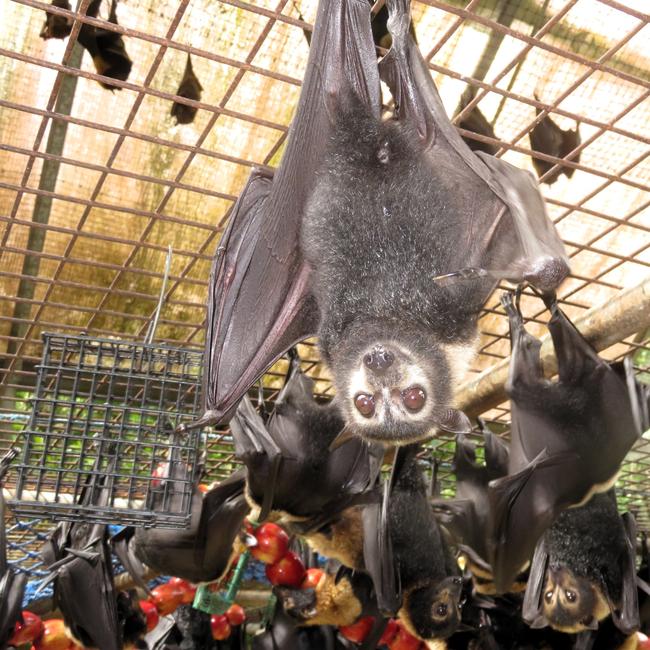Spectacled flying fox: Plan to help fruit bats survive heatwaves
North Queensland scientists are exploring ways to help an endangered species of flying fox survive severe heatwaves.

Townsville
Don't miss out on the headlines from Townsville. Followed categories will be added to My News.
North Queensland scientists are exploring ways to help an endangered species of flying fox survive severe heatwaves.
James Cook University’s Professor Susan Laurance said an estimated 33 per cent of spectacled flying foxes native to North Queensland – an estimated 20,000 bats – succumbed to extreme weather in 2018.
Prof Laurance, who will co-lead the project funded by Australia’s National Environmental Science Program, said the spectacled fruit bats had been listed as endangered since 2019.
She said the animals found in the Wet Tropics and rainforests of Cape York played a vital role as “key pollinators and seed dispersers”.
“But they are vulnerable to mass mortality associated with extreme heat,” she said.

“An extreme heatwave in 2018 resulted in the death of over 20,000, approximately one-third of the population, leading to them becoming listed as endangered.”
Professor Laurance said the frequency and intensity of extreme heat events had notably increased in recent years.

“The funding will allow us to identify roosting sites where the flying foxes are most at risk and to refine the tools we have to forecast high-risk extreme heat events.”
She said they would also develop a “plan of action for when the next one hits”.\
Interventions could include water misting systems, moving the animals’ roosts and revegetation designed to enhance the species’ chances of survival, she said.
Co-leader Professor Andrew Krockenberger, an animal physiologist with expertise in understanding the impact of temperature extremes, said there was wide variation in where the animals died during the 2018 heatwave.
“We hope to address this with fine-scale research on how weather interacts with roosts at the local scale, and how interventions can be better focussed on key locations,” he said.
“Local government have developed action plans but this research will help to focus limited resources on where and when the threat is greatest and how best to respond.”
The project will run until 2027.
More Coverage
Originally published as Spectacled flying fox: Plan to help fruit bats survive heatwaves





